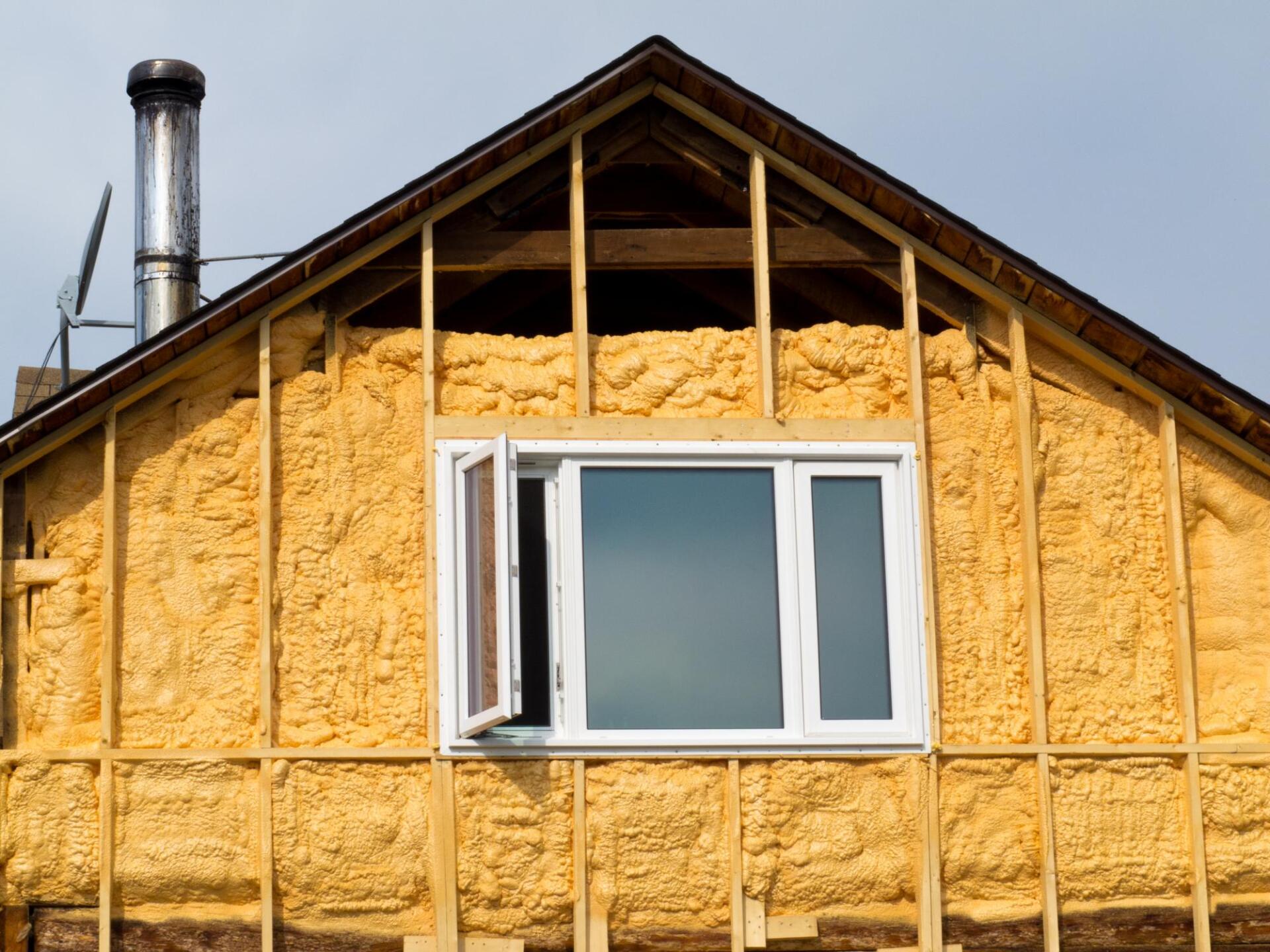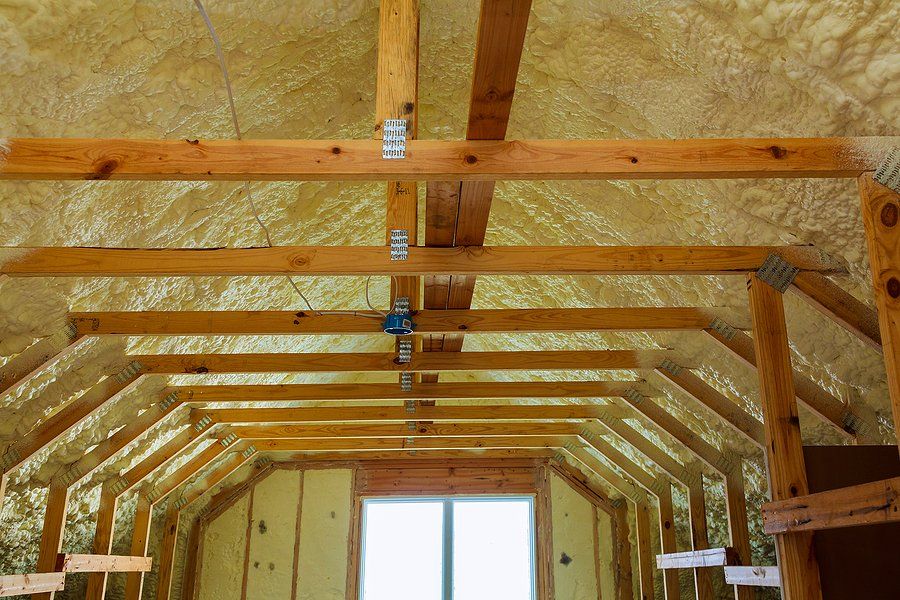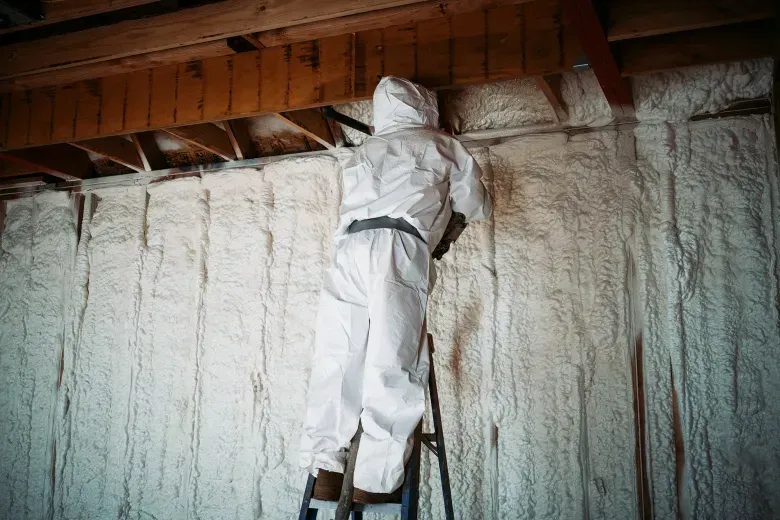The Role of Spray Foam Insulation in Preventing Thermal Bridging
Harnessing the Power of Spray Foam Insulation to Prevent Thermal Bridging in Tulsa
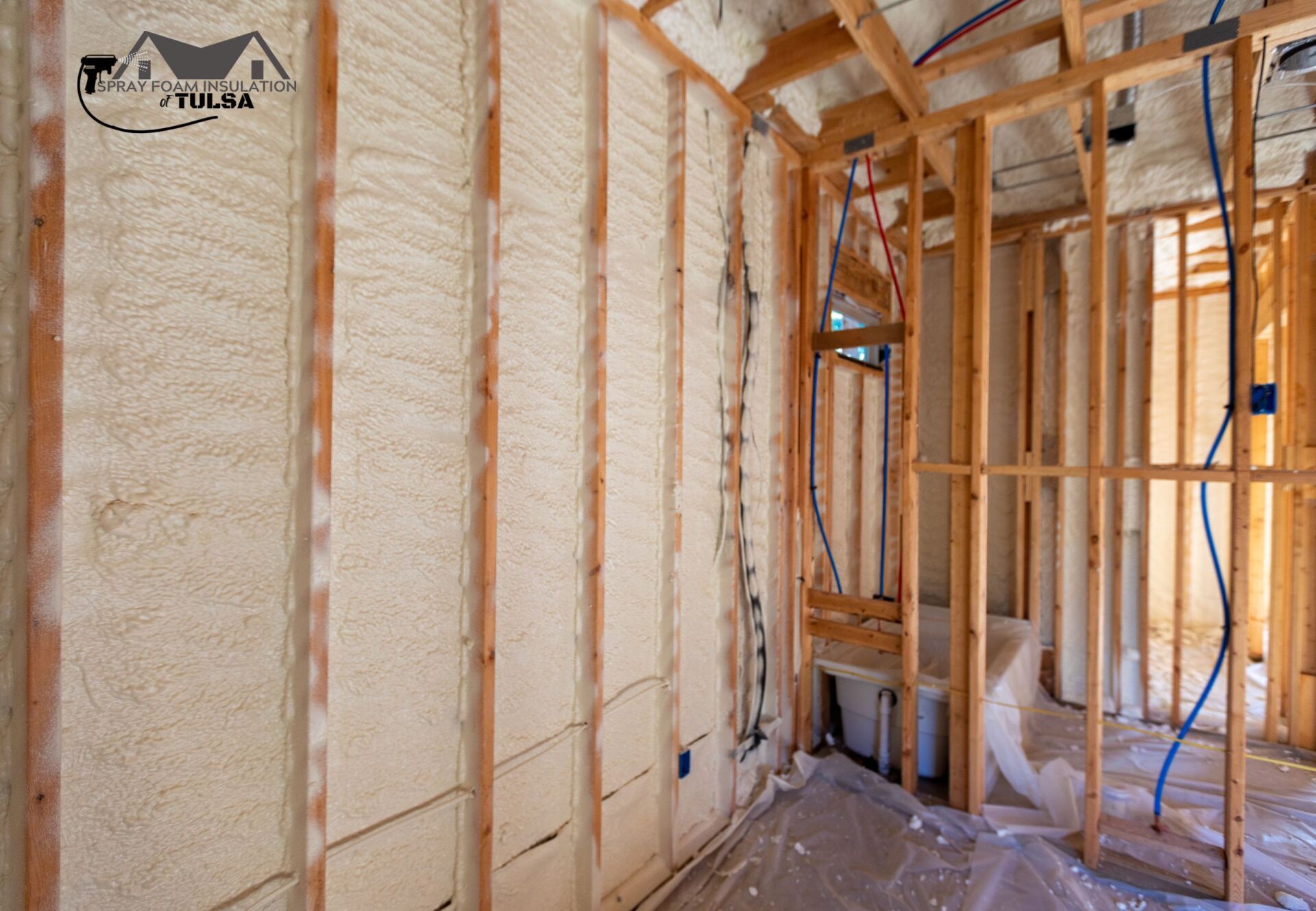
In the world of energy-efficient building design, one critical consideration is thermal bridging—a phenomenon where heat moves through a building envelope more easily in areas of reduced insulation, leading to energy loss and decreased comfort. In Tulsa's climate, where temperatures can fluctuate dramatically throughout the year, preventing thermal bridging is essential for maintaining a comfortable indoor environment and reducing energy costs.
Understanding Thermal Bridging
Before delving into the role of spray foam insulation, it's essential to understand what thermal bridging is and how it affects building performance. Thermal bridging occurs when heat bypasses insulation and transfers through materials with higher thermal conductivity, such as wood framing, steel studs, or concrete walls. These areas of reduced insulation create pathways for heat to escape or enter a building, leading to uneven temperatures, increased energy consumption, and potential condensation issues. In Tulsa's climate, where both heating and cooling are necessary throughout the year, addressing thermal bridging is crucial for maintaining indoor comfort and reducing energy bills.
Understanding thermal bridging is crucial for homeowners, builders, and architects as it directly impacts the energy efficiency and comfort of a building. In cold climates, thermal bridging can result in cold spots, condensation, and higher heating costs, while in warmer climates, it can lead to overheating and increased cooling expenses. Addressing thermal bridging involves using insulation materials and techniques that minimize heat transfer and create a continuous thermal barrier throughout the building envelope. By addressing thermal bridging effectively, buildings can achieve higher levels of energy efficiency, reduce utility costs, and create more comfortable indoor environments for occupants. This requires careful consideration of building materials, insulation methods, and construction techniques to minimize heat loss or gain and optimize thermal performance.
The Role of Spray Foam Insulation
Spray foam insulation in Tulsa is a highly effective solution for preventing thermal bridging and improving the overall energy efficiency of buildings in Tulsa. Unlike traditional insulation materials like fiberglass or cellulose, which can leave gaps and seams that allow heat to escape, spray foam insulation forms a seamless, airtight barrier that provides superior thermal performance and minimizes thermal bridging. When applied to walls, ceilings, floors, and other areas of the building envelope, spray foam insulation fills gaps, cracks, and voids, creating a continuous layer of insulation that reduces heat transfer and enhances indoor comfort.
Addressing Critical Areas
One of the key advantages of spray foam insulation is its ability to address critical areas of thermal bridging that are often overlooked with traditional insulation methods. In Tulsa, common areas of thermal bridging include framing members, junctions between different building materials, and areas where pipes, ducts, or electrical wiring penetrate the building envelope. Spray foam insulation can be precisely applied to these areas, effectively sealing gaps and creating a thermal barrier that prevents heat from escaping or entering the building. By targeting these critical areas, spray foam insulation helps maximize energy efficiency and minimize thermal bridging throughout the entire structure.
- Minimizing Air Leakage: In addition to preventing thermal bridging, spray foam insulation also helps minimize air leakage—a significant contributor to energy loss and reduced indoor comfort. The seamless, airtight seal created by spray foam insulation eliminates drafts, air infiltration, and exfiltration, reducing the workload on heating and cooling systems and improving overall energy efficiency. In Tulsa's climate, where hot summers and cold winters require reliable HVAC systems to maintain indoor comfort, minimizing air leakage is essential for optimizing energy performance and reducing utility costs.
- Adapting to Tulsa's Climate: Tulsa's climate presents unique challenges and considerations for building design and insulation strategies. With hot, humid summers and cold, windy winters, homes and buildings in Tulsa must be equipped to handle a wide range of weather conditions while maintaining indoor comfort and energy efficiency. Spray foam insulation offers versatile solutions that adapt to Tulsa's climate, providing effective thermal insulation, air sealing, and moisture control year-round. Whether used in new construction or retrofit applications, spray foam insulation helps homeowners and builders in Tulsa create energy-efficient, comfortable living spaces that stand up to the demands of the local climate.
Achieving Energy Code Compliance
In addition to its energy-saving benefits, spray foam insulation can also help builders and homeowners in Tulsa achieve compliance with local energy codes and building standards. Many energy codes require specific levels of thermal insulation and air sealing to meet minimum efficiency requirements and ensure occupant comfort. By using spray foam insulation to address thermal bridging and minimize air leakage, builders can exceed these requirements and enhance the energy performance of their buildings, reducing energy costs and environmental impact while maximizing comfort and indoor air quality for occupants.
Choosing the Right Insulation Contractor
When considering spray foam insulation for your home or building in Tulsa, it's essential to choose the right insulation contractor with experience, expertise, and a commitment to quality. Look for contractors who are licensed, insured, and certified like our pros to install spray foam insulation, and inquire about their track record of successful projects in Tulsa's climate. Ask for references, reviews, and examples of past work to ensure that you're partnering with a reputable contractor who can deliver the results you need.
In Tulsa's climate, where temperature extremes and energy costs are significant concerns for homeowners and builders, spray foam insulation offers a powerful solution for preventing thermal bridging, improving energy efficiency, and enhancing indoor comfort. By creating a seamless, airtight barrier that minimizes heat transfer and air leakage, spray foam insulation helps homeowners and builders in Tulsa achieve their energy-saving goals while creating more comfortable, sustainable living spaces. With its versatility, effectiveness, and adaptability to Tulsa's climate, spray foam insulation is a valuable investment that pays dividends in energy savings, comfort, and peace of mind for years to come. Contact us to learn more about how spray foam insulation can benefit your home or building.
You might also like
SPEAK TO A SPRAY FOAM TEAM MEMBER TODAY
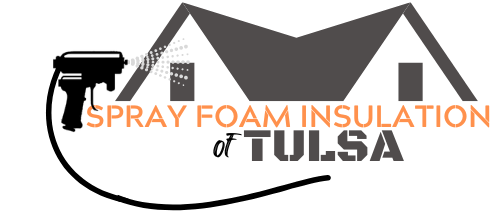
Spray Foam Pros of Tulsa offers expert spray foam insulation services for residential, commercial, and new construction projects, enhancing energy efficiency.
Contact Information
Phone: 918-921-6986
Email: info@sprayfoaminsulationoftulsa.com
Address:
1728 S Quincy Ave, Swan Lake, Tulsa, 74120, Tulsa, OK, United States
Useful Links
Our Services
All Rights Reserved | Spray Foam Insulation of Tulsa
Website Managed by
Leads By Vinny

